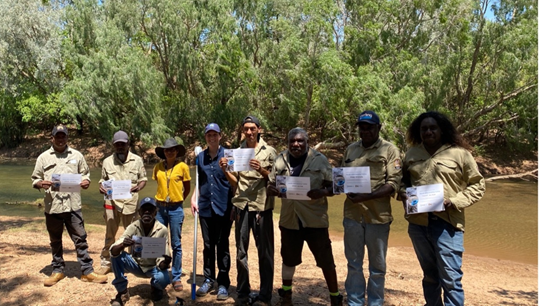
Tracking gastrointestinal pathogens in remote Papua New Guinea communities
This project evaluated the water quality of remote sites in Papua New Guinea, using SourceDNA to track gastrointestinal pathogens in waterways and understand catchment health for the conservation forest and human communities.
The Great Australian Platypus Search
This is the largest systematic investigation of platypuses ever undertaken, assessing over 1800 sites throughout all Victorian river basins. Odonata Foundation partnered with EnviroDNA to develop a national aquatic monitoring program utilising eDNA and citizen scientists to generate landscape scale data.
Understanding Potential Impacts of 2019/20 Bushfires on Platypuses
South-eastern Australia experienced devastating bushfires during the summer of 2019/20. EnviroDNA partnered with Cesar Australia to undertake a broadscale eDNA survey funded through the Australian Government Regional Bushfire Recovery for Multiregional Species and Strategic Projects Program to quantify the potential impacts on platypuses in NSW using landscape-scale occupancy data.
Traditional Owner eDNA Training & Certification Program
This Program provides Traditional Owners, as the waterway managers and environmental water holders on Country, with the skills to undertake eDNA water sampling on Country. eDNA technology is a culturally and ecologically sensitive, accurate and safe method for surveying biodiversity on land and in waterways. EnviroDNA recognises the important role that eDNA has in advocating for biodiversity and biocultural surveys to be undertaken on Country by Traditional Owners.
Natural Capital Monitoring in the Burnett Mary Region
Burnett Mary Regional Group is undertaking a biodiversity assessment for native fauna as part of a project developing a comprehensive environmental account of natural assets in the region. This project applies an EnviroDNA Method under the Accounting for Nature framework that uses eDNA to support large scale monitoring.
Fox Predation Diet Analysis
East Gippsland Landcare Network sought used eDNA to investigate the diet of foxes from scat samples found in Blond Bay Wildlife Reserve following the extensive Black bushfires. This study involved a particular interest in the presence of migratory shorebird species,
Aquablitz
Melbourne Water used eDNA for project 'Aquablitz' designed to provide a biodiversity snapshot within Melbourne’s waterway catchments. These catchments are home to a diverse range of animals, including fish, frogs, water birds, mammals, crayfish, reptiles and macroinvertebrates. To identify opportunities to protect and improve the health of waterways, Melbourne Water needs ongoing information about where various species occur.
National Landcare Program
Farm dams typically exist for productivity benefits, but what if we explored the role they can also play to support wildlife in agricultural landscapes? Jindivick and Neerim District Landcare used eDNA to undertake a biodiversity assessment of farm dams. This citizen science project was funded by the National Landcare Program.







